Robert Marchetti Interview: Key Takeaways
- Robert Marchetti built his career across every aspect of the restaurant industry, from Dishwasher to owner, giving him a unique, all-rounded perspective.
- Despite receiving prestigious honors, Marchetti values loyal guests leaving happy more than any industry trophy.
- From overcoming the COVID-19 closure of his New York restaurant to embracing changing trends, Marchetti highlights persistence as key to hospitality success.
Who is Robert Marchetti?
Robert Marchetti is a New York-based Australian hospitality veteran known for creating and operating some of the world’s most acclaimed restaurants and bars. With a track record of opening award-winning venues recognized in the ‘Top 100 In The World’ and ‘Best New Restaurant’ categories, Robert is also the new CEO of Sky Construction Management, a company specializing in building high-level hospitality venues. Robert’s Raw Hospitality podcast motivates hospitality professionals in the US and globally.
You're known for so many things in hospitality. How do you define yourself professionally?
I love every aspect of the hospitality industry. I do not like to be pigeonholed. I began my career as a dishwasher quite young, then became a cook. At some point, I was curious about managing a dining room, which I did. Next, I was involved in compiling wine lists and finally opened a restaurant. I have always wanted to perfect or at least tackle everything involved in running a restaurant—from concept development to design and construction, I did it all.
Sometimes I like being an owner, but other times I hate it—especially when it comes to paying rent. There are moments too, when I would prefer to work for someone and spend their budget rather than using my own money. Ultimately, I understand all aspects of the business so I could speak knowledgeably with chefs, owners, clients, or anyone in the industry.
What projects are you most proud of?
One of my first successes was with my brother's restaurant, Marchetti's Latin, in the late ‘80s, which became one of the best Italian restaurants in Australia. This restaurant won three Chef Hat Awards which is the Australian equivalent of a Michelin star.
Another one was opening The Icebergs Dining Room and Bar in Bondi Beach, which became very famous. What started as a casual beach house became a celebrity hotspot. I guess it was because of our approach to customer service. We always treated celebrities like normal people, and they felt comfortable with us, and normal people like celebrities.
By 2013, we were at a peak, but I decided to sell. Everyone was shocked and asked why, but after a decade of running multiple restaurants with hundreds of staff, I felt I had reached my limit.
More recently, I’m proud of opening Verōnika Berlin, which has been getting fantastic reviews. Building something from scratch is always rewarding.
Which award do you think is most meaningful to a restaurant owner or chef?
Honestly? The greatest reward for me is having a restaurant full of regulars who leave with a smile. Awards are nice, but they’re not always vetted properly. Who are the people deciding on these awards? What could they possibly know to give them any qualifications in judging my 40-year career?
The real prize is walking into a dining room and saying, "How was dinner?" and they say, "Incredible." No trophy beats that.
What was the biggest challenge in your career?
Every project has its challenges, but the hardest was selling my restaurant in New York during the COVID. Six months before the pandemic hit, the restaurant was doing great with customers queuing outside. I remember standing with my chefs thinking, “We’ve made it in New York.”
That was a tough time, and I think most restaurateurs would agree that COVID was the most challenging period the industry has ever faced.
Do you think the industry is completely back on its feet, post-COVID? There's still talk of staffing issues.
Look, I've been in this industry since I was 14, and I've never heard anyone say it was easy to recruit. COVID didn't change the fundamentals of the industry-it just amplified some of the challenges that have always existed. The food costs have always been high, labor has always been expensive. The pandemic made things more complicated, but those struggles were always there.
However, the restaurant business is similar to the housing market-it's always growing, regardless of whether that demand is there or not. The key is creating an unforgettable experience for your customers. That's what keeps a restaurant alive.
What advice would you give to someone just starting out, like a 14-year-old dishwasher or a 16-year-old line cook?
My advice would be to really understand the commitment you're making, because it takes long hours and hard work. It can be super rewarding if you love it, but this isn't easy. Find good partners-people you can count on when things get tough.
Don't go into it to get rich, go into it because you love it, because you're passionate about making people happy. If you do that, you'll find success in your own way. I know millionaires who are miserable and poor folks who are incredibly happy. My advice? Take a breath, follow your instincts, and travel. The world is more complex than Instagram shows.
And don't let anyone tell you it's a bad business to get into. If I'd listened to all those people who told me I'd fail I would never have achieved anything.
Do you believe Gen Z is less fit for restaurant jobs than previous generations?
I often hear older generation people say, "You don't know what I went through," and honestly, it’s nonsense. They have different challenges to face than what we did. There are a lot of disciplined young people eager to work hard —even of it means chopping onions or washing dishes.
There is so much information now, and it's hard to sort through what is true and what isn't. Young chefs have so many tools available, but sometimes they get lost in all the noise. I remember my first salary was $96 a week, and I used to sneak into bookstores to copy recipes by hand because I couldn’t afford to buy the books.
Do you mentor, and do you think it’s important for young chefs to have mentors?
Yes, I think mentorship is crucial. I’ve mentored two young people, one in Indonesia and one in Hong Kong. I didn’t have mentors when I was younger—I didn’t even know what a mentor was until I was middle-aged. One of my mentors is a well-known public figure in Australia who owns sports teams and is a TV star. He taught me a lot about navigating the public and private aspects of the business.
For young chefs looking for mentors, I’d say don’t be afraid to reach out. But be thoughtful about their time and how you want to use it. Don’t just say, "I admire you, help me." Be specific—tell them exactly why you want to talk to them and what you hope to gain.
How does technology impact the restaurant industry?
Technology is a two-edged sword. Of course, it enables online reservations, and you can write your menu with AI. However, you might lose something along the way—the personal touch.
Restaurants are still about people and their experince. It's ironic that people come to the restaurant all dressed up, only to scan the QR code and look at their phones.
Which restaurant categories are thriving or struggling?
I see a lot of people talking about fine dining being dead. Often it is just lazy commentary. We’ve seen fine dining come back time and time again. There are cycles—casual dining may rise and fall, but at some point, people want to dress up and have that special dining experience. It’s important to remember that trends shift, but some things always remain.
Speaking of trends, how have restaurant designs evolved?
The design has seen significant changes, especially in terms of materials. However good design stands the test of time, and we strive for that at our venues.
Restaurants should make you feel something when you sit down—everything from the chair’s comfort to the lighting contributes to that experience.
A successful restaurant design must complement the menu and overall experience. Imagine this: You go from a beautifully lit dining area, where you’re all dressed up, and then walk into a cold, bright hallway with no music. It’s like leaving a theater; you’re completely taken out of the mood.
And these little details matter. For example, you're spending $300 for dinner, and you get to the bathroom, and there’s blue soap. Some of my favorite restaurants in Manhattan still miss the mark—great meals but blue soap! It’s those details that can elevate or break the experience.
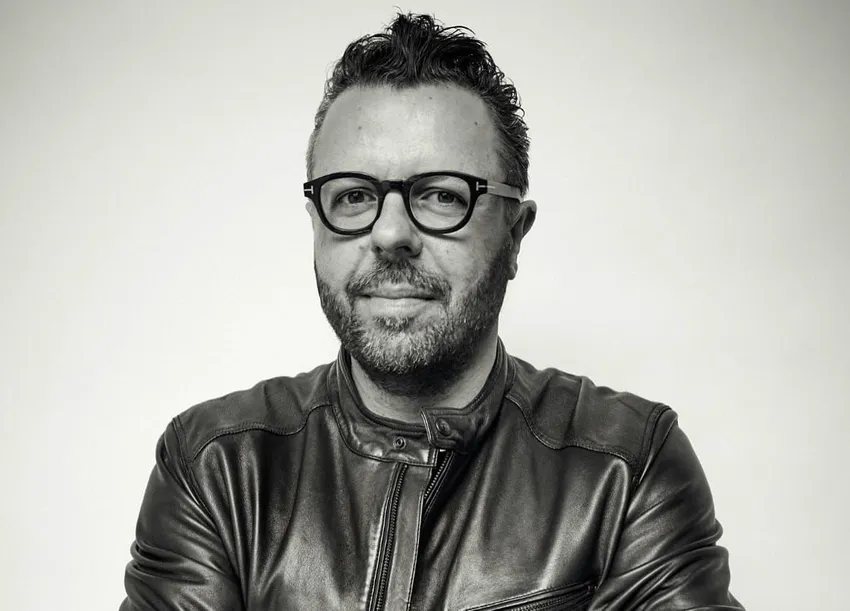

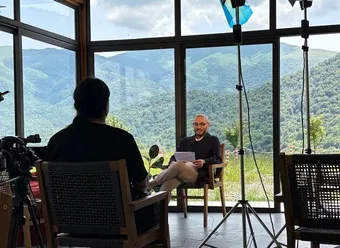
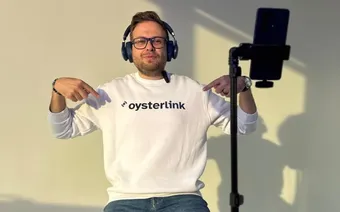
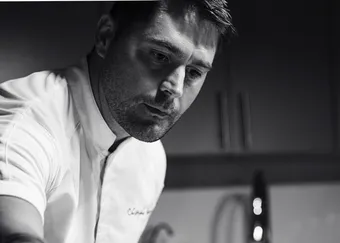
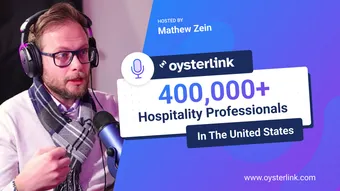
Loading comments...